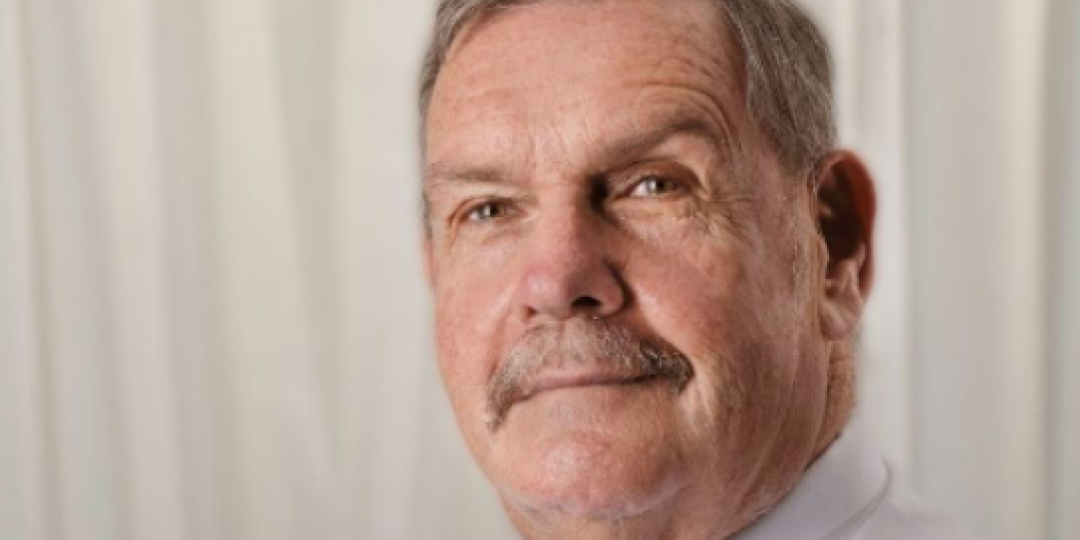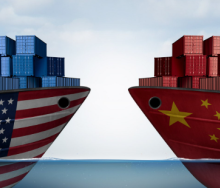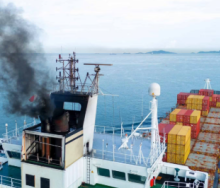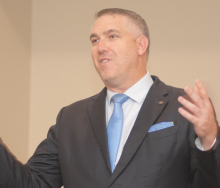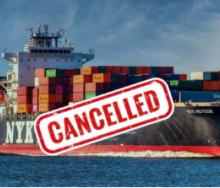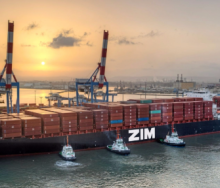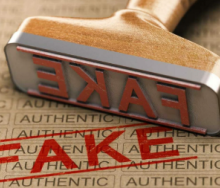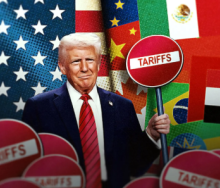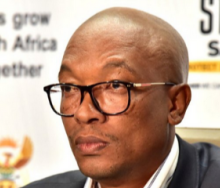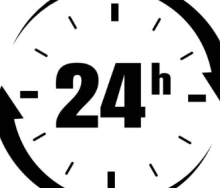In a bid to avoid trade fallout from tariff ramifications with the US, Exporters Western Cape (EWC) has appealed to South African President Cyril Ramaphosa to take the necessary steps to remedy relations with the government of Donald Trump.
EWC chair Terry Gale has warned of “a potential bloodbath of job losses in the export industry”, calling on Ramaphosa to accede to Trump’s admonition to address some of America’s concerns.
Gale said if the necessary diplomatic appeasement is done, “the US President may decrease the tariff or limit it in scope.
“If South Africa retaliates against US exports, the US President may increase the tariff or expand it in scope – the choice is ours!”
But the South African government, on the same April 9 deadline that the US gave for a diplomatic outreach from Ramaphosa's government, has yet to make a significant gesture that it’s willing to negotiate with Trump.
On Tuesday morning, as South Africa faced “reciprocal tariffs” of 30% on exports that had previously received duty-free access to the US market, International Relations minister Ronald Lamola said the country stands firm on its International Criminal Court case against Israel for the war in Gaza, a major bone of contention for Washington.
Trump has repeatedly stated that the Ramaphosa’s government's failure to break off diplomatic ties with organisations and country’s viewed by the US as supportive of terrorism, such as Hamas and Iran, as a reason for South Africa falling foul of the US.
On various occasions, the South African government has explicitly stated that it will not be intimidated by the Trump administration's tariff threats.
In his State of the Nation Address on February 6, Ramaphosa declared: "We will not be bullied.”
However, South Africa has also chosen not to retaliate with countermeasures.
Instead, the government is seeking to negotiate exemptions and quota agreements with the United States. Trade Minister Parks Tau emphasized that immediate reciprocal tariffs would be counterproductive without understanding the US's rationale.
But several industry stakeholders, such as Gale, feel that not enough is being done to protect local economic interests from last Wednesday's tariff announcements in Washington.
The EWC stated that it would gladly arrange for Ramaphosa to address the industry at the Cape Town International Convention Centre at a time that fits his schedule.
Gale said presidential spokesperson Robert Hlongwane has referred him to Tau.
“I still feel with the sweep of a pen by President Ramaphosa, this can be put behind us and we can rebuild the relationship we enjoyed with the USA – why must we all be the victims!”
Tau himself has acknowledged that the implementation of US tariffs on South African goods, previously given duty-free access to the US, would be disastrous.
“The reciprocal tariffs effectively nullify the preferences that sub-Saharan Africa countries enjoy under the Africa Growth and Opportunity Act (Agoa).
“The sweeping tariff measures will affect several sectors of our economy, including the automotive industry, agriculture, processed food and beverage, chemical, metals, and other segments of manufacturing, with implications for jobs and growth.
“The US represented 7.45% of South Africa’s total exports in 2024, while South Africa accounted for only 0.4% of US total imports. As such, South Africa does not constitute a threat to the US, and where there is a trade imbalance in favour of South Africa, it is mainly on agriculture products, which are counter-cyclical and on minerals, which are inputs in the US industries.”
Fears are that South Africa’s citrus exports to the US, much of which are done through the Port of Cape Town, could have serious socio-economic consequences for the Western Cape.
According to Gerrit van der Merwe who chairs the Citrus Growers Association of Southern Africa, the entire micro economy of Citrusdal depends on fruit exports to the US.
He said 35 000 jobs were directly related to the country’s US citrus export market.
